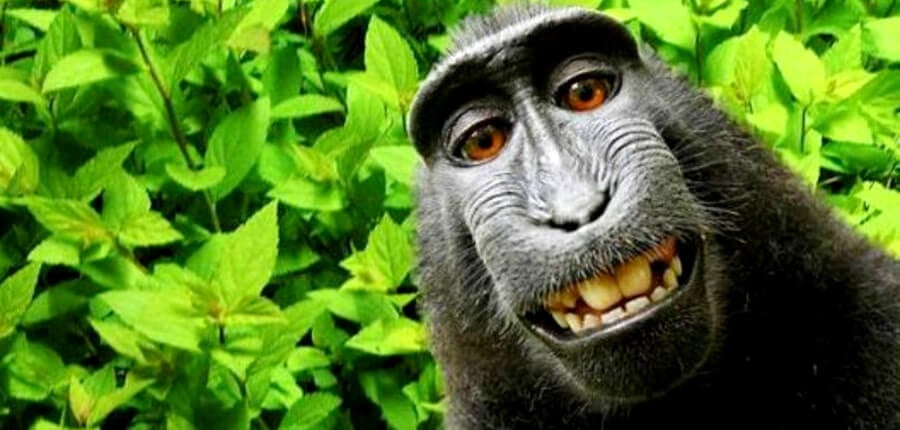It’s not often that one lawsuit sparks international conversation and debate, but PETA’s groundbreaking “monkey selfie” case did just that. The case, which was recently settled, sought to establish the macaque Naruto as the copyright owner of the photographs that he undeniably took with photographer David Slater’s unattended camera in 2011.
As I’ve discussed before in these pages, photographs don’t exist unless someone takes them. In Naruto’s case, he intentionally picked up Slater’s camera in an Indonesian jungle, watched his reflection in the lens, and made various faces while continually pressing the shutter button. In doing so, he created several photos, including the now-famous images of his smiling face. Despite the uniqueness of the case, there was not (and should not be) anything controversial about simply asking the court to acknowledge that Naruto is the owner of the copyright to his own photographs. The Copyright Act clearly provides that any “author” of a protected work is entitled to that legal right, and PETA believes that this should include Naruto regardless of his species.
As part of the settlement, Slater will donate 25 percent of future gross revenue from the monkey selfie photographs to charitable organizations dedicated to protecting and improving the welfare and habitat of Naruto and other crested black macaques in Indonesia. Crested macaque numbers have declined by 90 percent in the last 25 years as a result of being hunted for their flesh, “pest” control by local villagers, and habitat destruction by ever-encroaching human populations. These animals need all the help they can get, so this represents progress until the courts fully recognize that animals should not be excluded from fundamental rights.
There is a growing consensus among lawyers and laypeople that our legal system must recognize appropriate rights for animals based on the self-evident truth that they are thinking, sentient beings deserving of respect, consideration, and legal protections for their own sake, not just because of their utility to humans. Animals are our fellow global occupants and members of their own “nations,” who want only to be allowed to make their own choices, pursue their own pleasures and interests, and live out their lives in peace.
Not so long ago, women were denied the right to vote; black people were owned as slaves; and homosexuals were denied the right to choose a partner. All the early social pioneers who protested against these practices met with resistance and calls to keep things as they were. Today, ethical people look back on those prejudices with revulsion and shame.
While PETA’s monkey selfie lawsuit focused on one primate, Naruto, its aim is now more far-reaching. As long-held traditions and notions fall by the wayside—animal circuses, for example, are being relegated to the dustbin of history—there’s no doubt that granting animals fundamental rights is the next step in our cultural and ethical evolution.
Jeff Kerr is PETA’s Senior Vice President and General Counsel for Legal and Corporate Affairs.





